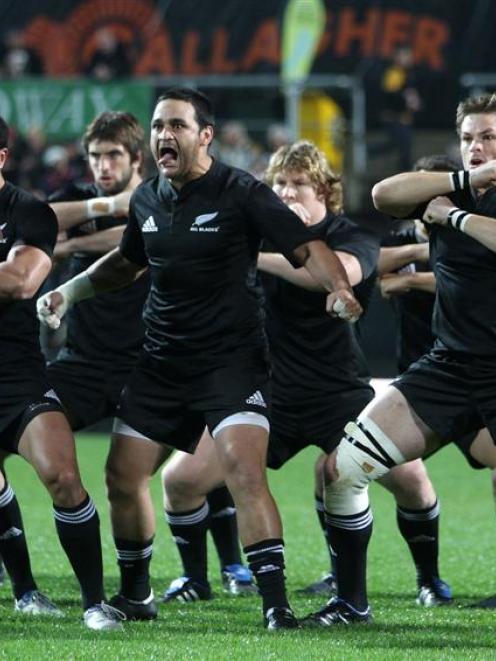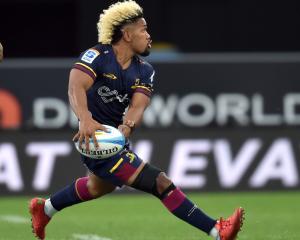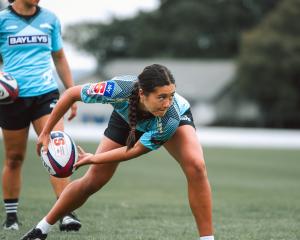
But there is evidence emerging that the haka is more of an emotional hindrance to the All Blacks than an effective means of intimidation. It might be that the haka does a better job of unsettling the All Blacks than the opposition and it hasn't gone unnoticed by the All Blacks coaches.
"We're poor starters," coach Steve Hansen said before last week's test against England. "We haven't quite got it right so maybe we are over-aroused or under-aroused."
Having such intense emotion in the minute before the game kicks off might be the reason the All Blacks don't have a track record of starting games well.
In the 31 tests played under head coach Steve Hansen, the All Blacks have conceded the first points in 17. In seven of those, they conceded the first points within five minutes and in another seven, conceded within the first 10 minutes.
In four of their last six tests, they have conceded the opening score and each time it has come within the first five minutes.
As theatre, the haka is unrivalled. It remains a critical mechanism by which the All Blacks can express their identity and acknowledge their history. It's hugely important to the players and All Black brand.
It is going to be done. No one thinks otherwise. But considered purely from a sports science perspective, it's questionable whether it makes sense.
Preparation is everything to the All Blacks. They train, plan, talk, train some more, plan some more, talk some more and, after six days of that, are finally ready to play a test.
And then having spent so long getting into the right mental state, the last thing they do before kickoff is, en masse, heighten their arousal levels. This, so the theory goes, is where their advantage lies. They are given free reign to get 'psyched up'.
But heightened arousal doesn't mean optimum arousal. After they fell apart at the 2007 World Cup, the All Blacks devoted themselves to studying the brain and understanding how it works. Mental skills coach Gilbert Enoka wanted to form a total picture of what happens to players when they perceive they are under pressure.
He told NZ Rugby World: "The brain essentially has three parts: instinct, thinking and emotion. Invariably under pressure, it is the thinking that shuts down and that means you are relying on emotion and instinct and can no longer pick up the cues and information to make good decisions.
"We spoke a lot about connecting, about staying connected. That was important because, if you become disconnected, then you can focus on outcome and not task and the ability to make good decisions is compromised."
The All Blacks talk of red heads and blue heads, with the former being an undesirable state -- not focused on task, stressed, panicked and ineffective.
Blue heads are aroused but focused -- stimulated but not over stimulated. It's what is meant by 'being in the zone'.
The haka may create red heads. It might be that players, maybe not all of them, take some time to come back to being blue heads after the haka. There may also be some truth that the haka has the secondary effect of helping some opponents get their blue heads. Over the years, various teams have tried different ploys when facing the haka.
Some have backfired -- Tony Underwood winking at Jonah Lomu in the 1995 World Cup semifinals and Australia steadfastly ignoring it in Wellington a year later. But France in 2007 and 2011 seemed to take all the energy from the haka and use it to their advantage.
"At the end of the day," former England lock Nigel Redman told the Daily Telegraph, "the haka is about a guy who has been betrayed by his villagers. He has been a bit of a tyrant and he hides himself away in a hole. When you translate it into English, it's hardly inspirational, is it?
"If you're into rhythm, beat, that sort of thing, you can get a lot out of the haka yourself. I used to pick the person who I thought did it the best, stand opposite him and tap my thighs to the rhythm of the beat. You have to watch it, accept it and then use the energy to your advantage."
- Gregor Paul









